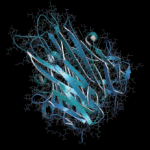BOSTON (Reuters)—A Rhode Island doctor pleaded guilty on Wednesday to charges he participated in a scheme to obtain kickbacks in exchange for writing prescriptions for an addictive fentanyl-based cancer pain drug produced by Insys Therapeutics Inc. The plea by Jerrold Rosenberg came amid ongoing investigations of Insys related to Subsys, an under-the-tongue spray that contains…
New Jersey Sues Insys as Opioid Maker Settles with Massachusetts
BOSTON (Reuters)—New Jersey on Thursday accused Insys Therapeutics Inc of engaging in a fraudulent scheme to boost sales of a fentanyl-based cancer pain drug, as Massachusetts announced a $500,000 settlement with the drugmaker to resolve similar allegations. The lawsuit by New Jersey Attorney General Christopher Porrino accused Insys of illegally directing its sales force to…
Reassuring Data on Cancer Risk with Contemporary RA Drugs
NEW YORK (Reuters Health)—A large Swedish study1 provides reassuring data on the risk of cancer in patients with rheumatoid arthritis (RA) treated with tumor necrosis factor (TNF) inhibitors or with tocilizumab, abatacept or rituximab. Overall, the risk of malignant neoplasms did not differ between patients treated with a first anti-TNF drug; a second anti-TNF drug; tocilizumab,…
FDA Approves First Biosimilar for the Treatment of Cancer
Mvasi, a biosimilar to the cancer drug Avastin, is approved for certain colorectal, lung, brain, kidney and cervical cancers The U.S. Food and Drug Administration today approved Mvasi (bevacizumab-awwb) as a biosimilar to Avastin (bevacizumab) for the treatment of multiple types of cancer. Mvasi is the first biosimilar approved in the U.S. for the treatment…

Innate Immune Response Predicts Development of Non-Hodgkin’s Lymphoma in Sjögren’s Syndrome
The P2X7 receptor inflammasome axis may have a role in the pathogenesis of Sjögren’s syndrome and non-Hodgkin’s lymphoma. According to new research, patients with Sjögren’s syndrome who developed non-Hodgkin’s lymphoma had an increased expression of the P2X7R-inflammasome axis and the glandular expression of IL-18, suggesting a possible novel biomarker…
IBD Treatments Don’t Seem to Raise Extracolonic Cancer Risk
NEW YORK (Reuters Health)—Immunosuppressants and anti-TNF drugs do not appear to increase the risk of extracolonic cancers in patients with inflammatory bowel disease (IBD), researchers from Spain report. IBD patients face an increased risk of colon cancer, and some studies have suggested there might be an increased risk of extracolonic cancer. Dr. Maria Chaparro from…

The Immune Checkpoint Inhibitors Unleashed to Fight Cancer
A 53-year-old female presented to the clinic for severe polyarticular joint pain and was found to have a seronegative inflammatory arthritis. Six months before, she had completed 10 months of treatment for stage IV metastatic melanoma with the immune checkpoint inhibitors, nivolumab and ipilimumab, achieving complete remission of her cancer. She said that throughout her…

Complex Treatment: Cancer, Immunotherapy & Rheumatic Disease
Some cancer patients taking immune checkpoint inhibitors experience immune-related adverse events. Laura C. Cappelli, MD, MHS, says rheumatologists are natural partners with oncologists to treat this patient population…
Immune-Related Adverse Events with Use of Checkpoint Inhibitors for Immunotherapy of Cancer
Introduction: Major advances in the past two decades have enhanced our understanding of the complex interactions between the immune system and cancer cells and their environment. Genetic and epigenetic alterations in tumor cells result in the expression of diverse antigens that can elicit an immune response, primarily mediated by T cells. Immune responses are regulated…

Cancer Risk for Patients with Juvenile Idiopathic Arthritis Taking TNF Inhibitors
WASHINGTON, D.C.—Juvenile idiopathic arthritis (JIA) patients taking TNF inhibitors don’t develop new cancers at a higher rate than JIA patients who don’t take TNF inhibitors, according to the largest study so far conducted to study the possible link. The findings were reported at the 2016 ACR/ARHP Annual Meeting in an abstract session that also included…